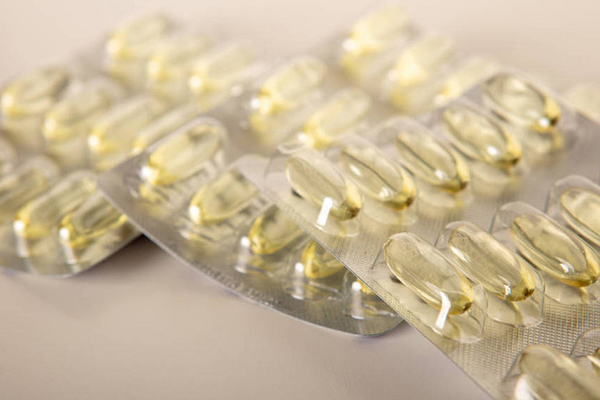Capsules are a popular and effective way to deliver medications and supplements. They offer numerous benefits, including precise dosage, ease of swallowing, and protection of the active ingredients. However, not all capsules are created equal. There are two main types of capsules: hard capsules and soft capsules. This article explores the characteristics, manufacturing processes, advantages, disadvantages, and common applications of both hard and soft capsules.
Understanding Hard Capsules
Hard capsules, also known as hard-shelled capsules, are composed of two separate pieces: a body and a cap. These pieces fit together to encase the drug or supplement. The shell is usually made from gelatin, derived from animal collagen, or from hydroxypropyl methylcellulose (HPMC), a plant-based alternative suitable for vegetarians and individuals with dietary restrictions.
Hard capsules are primarily used for dry, powdered ingredients but can also contain pellets, granules, or small tablets. Their design helps to mask the taste and odor of the contents, which improves patient compliance. The versatility in what they can contain makes hard capsules a staple in the pharmaceutical industry.
Exploring Soft Capsules
Soft capsules, commonly referred to as softgels, are made from a single, solid piece of gelatin. This gelatin is mixed with plasticizers to create a thicker, more flexible shell than that of hard capsules. Soft capsules are typically used to encapsulate liquids, oils, and semi-solid substances.
The seamless construction of soft capsules provides an airtight seal, protecting the contents from oxidation and contamination. This makes them ideal for oil-based formulations, fat-soluble vitamins, and certain medications that require enhanced bioavailability and stability.
Manufacturing Processes
The manufacturing processes for hard and soft capsules differ significantly, reflecting their unique structures and applications.
Hard Capsules Manufacturing:1. Preparation of Shell Material: Gelatin or HPMC is dissolved in water and heated to form a gel mass.2. Dipping: Stainless steel pins are dipped into the gel mass to form the capsule bodies and caps.3. Drying: The dipped pins are rotated and dried to harden the capsule shells.4. Stripping and Joining: The dried shells are stripped off the pins, trimmed, and the bodies and caps are joined together.
Soft Capsules Manufacturing:1. Gel Mass Preparation: Gelatin is mixed with plasticizers and water to form a gel mass.2. Sheet Formation: The gel mass is spread into thin sheets.3. Encapsulation: The sheets are fed into rotary die machines, where they form capsules while being filled with the liquid or semi-solid formulation.4. Sealing and Drying: The capsules are sealed and then dried to achieve the desired consistency and stability.
Advantages and Disadvantages
Each type of capsule has its own set of benefits and drawbacks, which can influence their suitability for different formulations and applications.
Advantages:
- Versatile in encapsulating different forms of substances (e.g., powders, pellets)
- Suitable for heat-sensitive ingredients
- Lower production costs compared to soft capsules
- Smooth surface, making them easier to swallow
Disadvantages:
- May require additional excipients to fill the capsule properly
- Limited ability to encapsulate liquids or oils
- Higher risk of capsule breakage or splitting during handling

Advantages:
- Ideal for liquid and oil-based formulations
- Enhanced bioavailability for certain medications
- Airtight seal provides superior protection against oxidation
- Easier to ingest for individuals with difficulty swallowing tablets
Disadvantages:
- More expensive to produce due to complex manufacturing process
- Not suitable for water
-based formulations
- Higher risk of gelatin cross
-linking over time, affecting dissolution
Applications and UsesThe choice between hard and soft capsules often depends on the nature of the drug or supplement and the desired release characteristics.
Hard Capsules are typically used for:
- Dry powders and granules- Pellets and beads for controlled release
- Hygroscopic substances that require protection from moisture
Soft Capsules are preferred for:
- Liquid and oil-based formulations- Fat-soluble vitamins (e.g., vitamins A, D, E, K)
- Medications requiring rapid absorption
Stability and Storage
Stability is a critical consideration for both hard and soft capsules. Hard capsules generally have good stability under dry conditions but can become brittle if exposed to low humidity or soften at high humidity levels. Soft capsules, on the other hand, are more sensitive to temperature and humidity fluctuations due to their higher moisture content and plasticizers.
Proper storage conditions for hard capsules include cool, dry places, while soft capsules should be kept in a controlled environment to prevent the shell from becoming too hard or too soft.
Bioavailability
Bioavailability refers to the extent and rate at which the active ingredient is absorbed and becomes available at the site of action. Soft capsules often provide better bioavailability for lipophilic (fat-soluble) drugs because the liquid or semi-solid fill enhances solubility and absorption. Hard capsules, while effective, may require additional formulation strategies to improve the bioavailability of certain drugs.
Conclusion
Understanding the differences between hard and soft capsules is essential for making informed decisions about drug and supplement formulations. Each type of capsule offers distinct advantages and limitations, making them suitable for different applications. Whether you are a healthcare professional, a manufacturer, or a consumer, knowing these differences can help you choose the most appropriate dosage form for your needs.
Media Contact
Company Name: Xiamen Gelken Gelatin Co., Ltd.
Email: Send Email
Phone: 0086-592-5627447
Country: China
Website: https://www.gelkengelatin.com/












